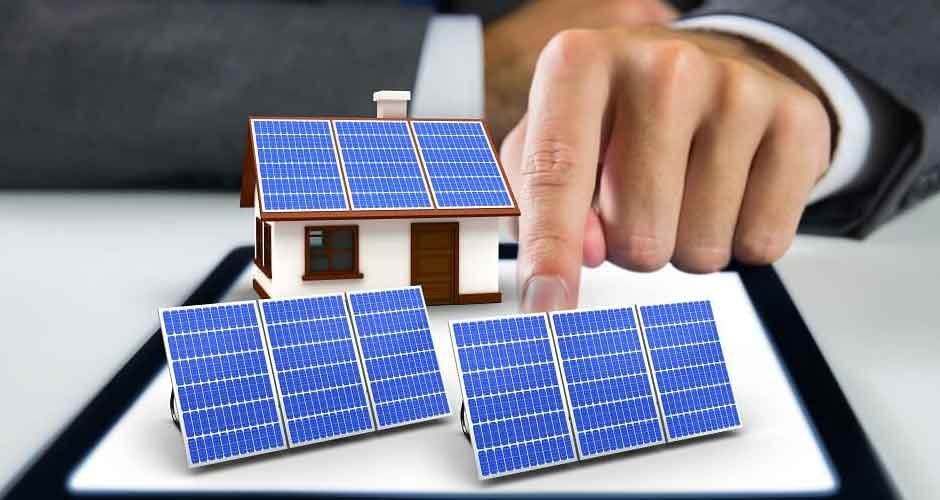Renewable energy options are becoming increasingly accessible and popular among homeowners. Understanding these options can help you make informed decisions about which systems are best for your home. Start by researching information to help you navigate the various renewable energy sources available. Each option has unique benefits and considerations. Investing in renewable energy can lead to significant savings and environmental benefits.
Solar Power: Harnessing the Sun
Solar power is one of the most common renewable energy sources for homeowners. Solar panels, typically installed on rooftops, convert sunlight into electricity. This clean energy can significantly reduce your electricity bills and lower your carbon footprint. The efficiency of solar panels depends on factors such as your location, roof orientation, and local climate. For instance, residents of North Las Vegas benefit from ample sunlight, making North Las Vegas solar installations a practical and efficient option. Additionally, various incentives and tax credits can offset the initial installation costs, making solar power an economically viable choice for many homeowners.
Wind Energy: Capturing the Breeze
Wind energy is another viable renewable energy option, particularly for homeowners in rural or windy areas. Small wind turbines can be installed on properties with sufficient space and wind resources. These turbines convert wind energy into electricity, which can be used to power your home or stored in batteries for later use. The feasibility of wind energy depends on local wind patterns and zoning regulations. Homeowners should conduct a thorough assessment of their property’s wind resources and consult with local authorities to determine the suitability of wind turbines. While initial costs can be high, the long-term savings on energy bills can make wind energy a worthwhile investment.
Geothermal Energy: Utilizing Earth’s Heat
Geothermal energy leverages the constant temperature below the Earth’s surface to heat and cool homes. A geothermal heat pump system circulates fluid through underground pipes, absorbing heat in the winter and dissipating heat in the summer. This system is highly efficient and can drastically reduce heating and cooling costs. Adding a geothermal system to a home requires a significant upfront investment and professional installation. However, the long-term benefits, including lower energy bills and reduced maintenance costs, can outweigh the initial expenses. Geothermal energy is a reliable and sustainable option for homeowners seeking an alternative to traditional HVAC systems.
Biomass Energy: Organic Material Conversion
Biomass energy involves converting organic materials, such as wood, agricultural residues, and even certain types of waste, into usable energy. Homeowners can use biomass systems for heating purposes by burning pellets or chips in a biomass boiler or stove. These systems can provide a renewable and cost-effective alternative to fossil fuels. The availability of biomass resources and local regulations can influence the practicality of biomass energy for your home. Furthermore, it’s essential to consider the environmental impact of sourcing and using biomass materials. With proper management, biomass energy can be a sustainable and efficient solution for residential heating.
Hydropower: Flowing Water Energy
For homeowners with access to flowing water on their property, small-scale hydropower systems can generate electricity. These systems use the kinetic energy of moving water to produce power, offering a reliable and continuous energy source. Hydropower is particularly suitable for properties near rivers or streams. The installation of a hydropower system requires careful planning and adherence to environmental regulations. Homeowners must evaluate the water flow, potential environmental impact, and legal requirements before proceeding. Although not suitable for every location, hydropower can be a highly efficient renewable energy option for those with the right resources.
Making the Right Choice
Selecting the best renewable energy option for your home depends on various factors, including your location, budget, and energy needs. It’s important to conduct thorough research, consult with professionals, and consider both the short-term and long-term benefits of each option. Combining multiple renewable energy sources can also enhance energy efficiency and reliability. Homeowners should take advantage of available incentives, rebates, and financing options to make renewable energy installations more affordable. Government programs and private initiatives often provide financial support to encourage the adoption of renewable energy technologies.
Embracing a Sustainable Future
Renewable energy options offer homeowners the opportunity to reduce their environmental impact, lower energy costs, and increase energy independence. These technologies can increase the value of your property. Moreover, adopting renewable energy can inspire others in your community to consider sustainable practices. Investing in renewable energy not only benefits your household but also supports global efforts to combat climate change and promote cleaner energy solutions. By understanding the various renewable energy sources and carefully evaluating your specific circumstances, you can make informed decisions that contribute to a sustainable future.


